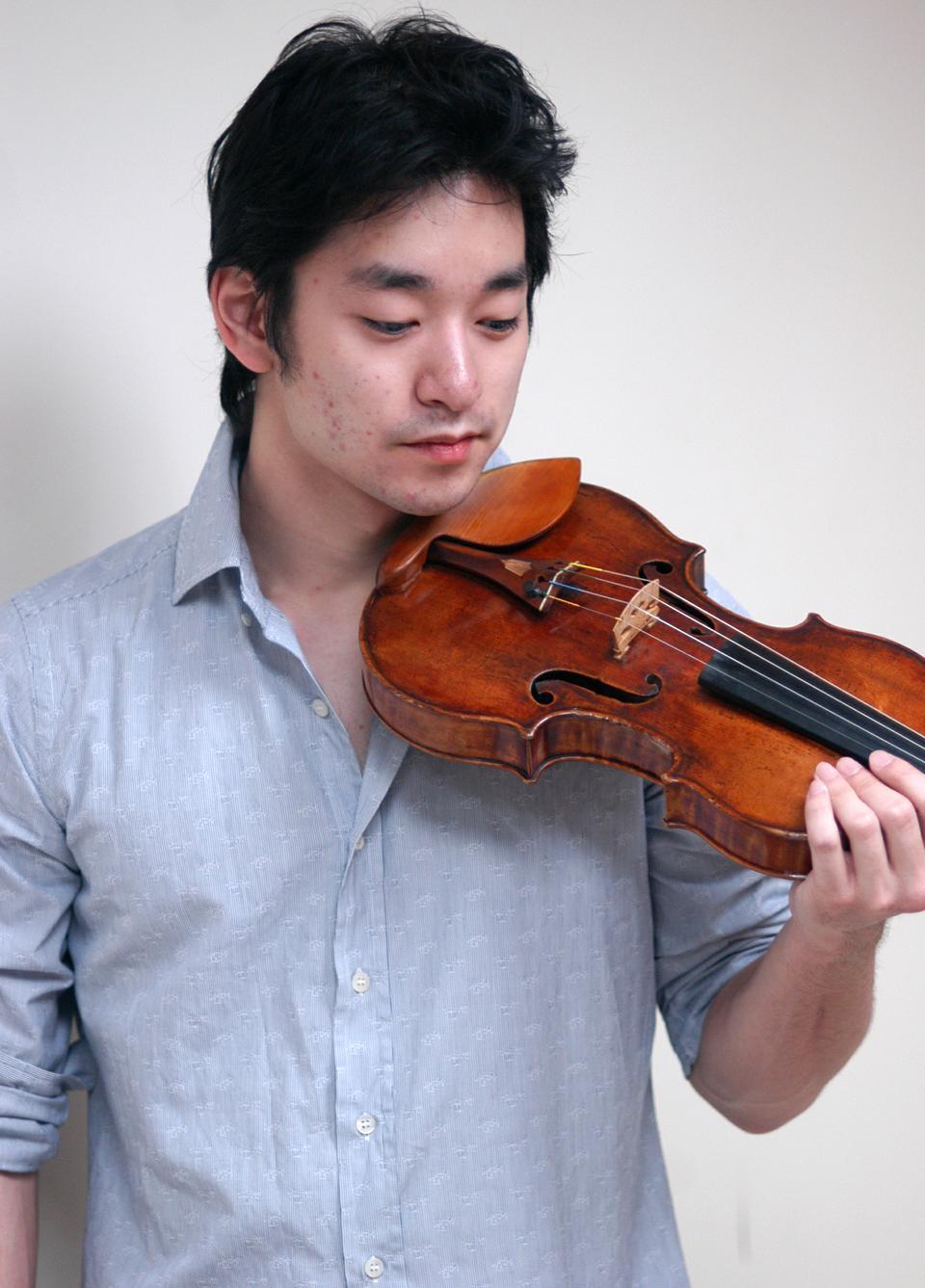
News
When Professors Speak Out, Some Students Stay Quiet. Can Harvard Keep Everyone Talking?

News
Allston Residents, Elected Officials Ask for More Benefits from Harvard’s 10-Year Plan

News
Nobel Laureate Claudia Goldin Warns of Federal Data Misuse at IOP Forum

News
Woman Rescued from Freezing Charles River, Transported to Hospital with Serious Injuries

News
Harvard Researchers Develop New Technology to Map Neural Connections
SPOTLIGHT: Ryu Goto '11

Ryu Goto ’11, brother of renowned violinist Midori Goto, will join the Bach Society Orchestra (BachSoc) this Sunday in a concert featuring the music of Strauss, Mendelssohn, and Brahms. Goto will solo in Brahms’ Violin Concerto. Touted by conductor Lorin Maazel as one of the finest young performers today, Goto has toured internationally over the past several years, playing with the London Symphony, the Orpheus Chamber Orchestra, the Shanghai Philharmonic, and the National Symphony in Washington, D.C. This semester, Goto has performed in Kansas, San Francisco, and Mexico City.
The Harvard Crimson: Why did you decide to go to Harvard? Did you consider studying at a conservatory?
Ryu Goto: I went to an unspecialized private school in New York, and I got to do a lot of things and have a wide perspective. But I had been to Julliard Pre-College for two years, and I saw the kind of difficulty [my friends] had to go through psychologically. In a conservatory, there’s only one way in and one way out, and that crushes a lot of people. Some are able to pull it off—to go through that tunnel by sheer willpower and talent and emerge as a giant in the field. But for every one that succeeds, there are thousands that fail. My parents understood the kinds of doubts and anxiety of having only one focus. Having come here, I decided not to concentrate in music under any circumstances, as a kind of personal policy.
THC: Do you notice a difference in the playing or attitude of American, European, and Asian orchestras?
RG: Asian orchestras tend to be more methodical, but at the same time, a little heavy-handed. They have the relatively meticulous, engineered quality you might expect. American orchestras are much more relaxed.
European orchestras tend to be opinionated—German orchestras especially. Playing the Brahms concerto in Germany—Brahms’ homeland—was a challenge for me because I am Japanese-American and have a heritage that has nothing to do with Germanic or Austrian music. But I could immediately tell [the music I was playing] just fit there. It was just natural for the audience and the orchestra. It was the same playing a Paganini Concerto with an Italian orchestra and Lorin Maazel. I felt like I was just playing by myself because they were so put together.
THC: Why do you think music from a certain country is often more suitable for orchestras native to that country?
RG: It’s cultural, social; it has to do with social mentality. It could be anything from language to just the way each person’s education in the larger sense has shaped their minds and their sensibility. When I listen on the radio I can almost always tell if someone’s European, Asian, or American—American’s a little harder; if it’s a guy or a girl playing. Once you become somewhat proficient at any endeavor, simply by looking at a work in your field, you can tell who’s doing it and that person’s general mentality.
THC: Why perform with BachSoc?
RG: I get the feeling that BachSoc is bound by camaraderie, not by didactic force. Everyone teaches and learns at the same time. Of course Yuga [J. Cohler ’11, music director] is a leader, but he’s very receptive to the feedback of the others. People are there not to compete but to experiment and to explore the boundaries of their musicality. They’re always striving to improve themselves under their own terms. Alan Gilbert [’89], the new conductor of the New York Philharmonic, is a family friend, and he conducted BachSoc. He and other alumni have said it was incredibly enriching. I’ll continue to play with them as long as they’ll have me. If I had time I’d try to be a member myself.
THC: Why perform Brahms’ concerto?
RG: The Brahms is my favorite. It’s a very satisfying piece. It has so much depth—partly due to Brahms’ genius, of course, but also due to the fact that he put so much work into it. He revised and proofread every work for a period of years—sometimes decades. There are no flaws in it. It’s a hard piece to play, too—you can’t wing it.
THC: Do you have any future plans for playing violin as a career?
RG: I have no idea. I’m just not really an ambitious guy. I love playing the violin, but I just don’t know how my sister made it there, with such a measure of self-discipline. I want to keep on doing music for the rest of my life… But there are other things I want to do.
THC: Do you prefer playing solo or in a chamber group?
RG: I love chamber music. I’m playing chamber music right now, and I want to have a band someday. I play the guitar here. They’re both satisfying, but with solo playing, you’re just the boss. I sound like a douche saying that, but it’s an opportunity for you to lead—to be an inspiration.
—Matthew H. Coogan
Want to keep up with breaking news? Subscribe to our email newsletter.
